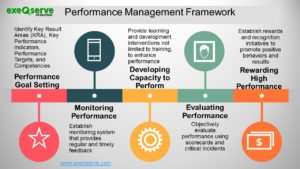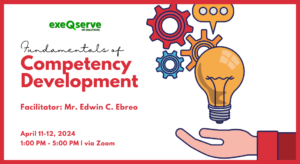In the corporate world of the Philippines, a common misconception prevails, equating performance management with performance appraisal. However, this view is limited and misses the broader scope of performance management. While performance appraisal is a significant component, it is not the entirety of performance management.
The Role of Performance Appraisal
Performance appraisal is often seen as the culmination of an employee’s yearly efforts, gauging their effectiveness and productivity. But it’s more than that. It’s a reflection of how well managers have guided their team members toward achieving organizational goals. This process is as much about evaluating the managers’ effectiveness as it is about the employees.
The True Aim of Performance Management
Performance management transcends mere evaluation. Its ultimate goal is to foster performance improvement and goal achievement. This process involves a series of steps where managers play a crucial role in guiding employees:
- Setting Clear Goals:
Managers need to work with employees to establish clear, achievable performance goals. These goals should align with the company’s objectives and be tailored to the employee’s role and capabilities.
- Regular Monitoring and Feedback:
Like a coach tracking an athlete’s progress, managers should consistently monitor employee performance and provide timely feedback. This practice helps identify improvement areas and keeps employees on track toward their goals.
- Identifying Development Needs:
As employees strive toward their objectives, managers must recognize their developmental needs. This might include additional training, coaching, or resources. Addressing these needs is vital for employee growth and goal attainment.
- Performance Appraisal as a Joint Assessment:
The appraisal process should collaborate between the manager and the employee. It’s a time to assess the effectiveness of their combined efforts towards shared objectives. Performance-based rewards, if available, can further motivate employees.
Tips for Managers to Enhance Performance Management
Regardless of the sophistication of your company’s performance system, managers can adopt certain practices to facilitate performance improvements:
- Frequent Communication: Regular discussions about performance, expectations, and goals are crucial. This keeps both parties aligned and engaged.
- Empowering Employees: Give employees ownership of their goals. Encourage them to come up with solutions and strategies to achieve these goals.
- Creating a Supportive Environment: Foster a culture where mistakes are seen as learning opportunities. Provide support and encouragement, not just criticism.
- Customized Development Plans: Recognize that each employee is unique. Tailor development plans to fit individual strengths, weaknesses, and career aspirations.
- Using Technology: Leverage technology for regular performance tracking and providing real-time feedback. This can make the process more efficient and effective.
- Recognizing and Rewarding Achievements: Celebrate successes, no matter how small. Recognition is a powerful motivator and reinforces positive behaviors.
Performance Management needs to evolve from a narrow focus on appraisal to a more holistic approach that encompasses continuous development, regular feedback, and supportive leadership. By doing so, organizations can ensure that they are not just assessing performance but actively enhancing it, leading to a more motivated workforce and the achievement of organizational goals.













